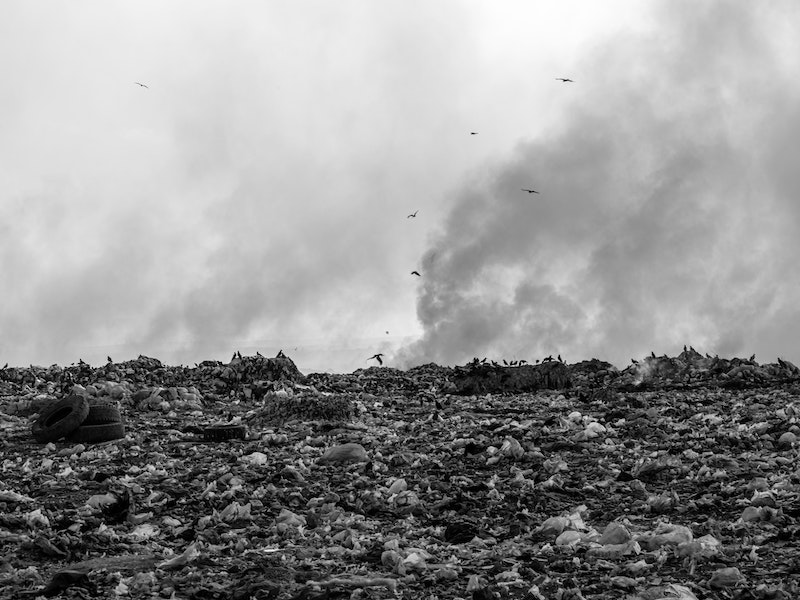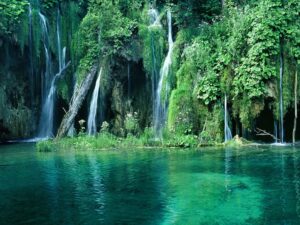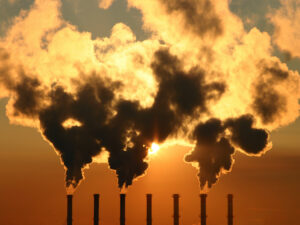Our ego-centric relationship with nature has led to terrible consequences
The climate crisis is always framed as something that has the potential to destroy Earth — but that’s not the case. It has the potential to destroy the conditions humanity needs to thrive on Earth. If those conditions change, the Earth will be just fine; it’s humans who will have a problem. How we frame the climate crisis reflects our relationship with the natural world. We behave as if the natural world exists to serve our needs. But it’s only been possible for civilisation to develop as it has due to a stable climate. We’ve changed those conditions by emitting billions of tonnes of greenhouse gases into the atmosphere, and now our existence as a species is under threat. We’re biting the hand that feeds us, but why on earth would we do so when we’re totally dependent on the natural world for our existence?
Our attitude to nature has its roots in the Bible. In Genesis 1:28, God commanded the human race to have dominion over every living thing. The ancient Greeks agreed with this idea. Aristotle argued, “plants are evidently for the sake of animals, and animals for the sake of Man; thus Nature, which does nothing in vain, has made all things for the sake of Man.” Little has changed in our attitude to living animals in the last 2000 years. There is a definitive hierarchy of which man is at the pinnacle. Unbelievably, as late as 1969, the International Union for the Conservation of Nature (IUCN) defined conservation as the “rational use of the environment to achieve the highest quality of living for mankind.”
The attitude that nature exists in service of man has led to an exploitative relationship developing. Man is driven by ego; we are separate from nature and behave as if it is here for us to do as we please. How different things would be if humanity had an ‘eco’ perspective and we used our intelligence and ability to influence nature for the common good. Forget about all of that. The benefits to us are all that matter. Any negative impacts of polluting, mining, deforesting, burning, and the countless other ways we harm the natural world have never been considered; in fact, they’ve been treated as externalities that don’t exist when money and profits, the things that are prized above all else, are there to be made.
The idea that nature may have some intrinsic value is nonsense. It exists to create value for humans if and when we decide to use it. That’s why 100 million sharks are killed each year for their meat and to make delicacies such as shark fin soup. It’s why over the last 50 years, 17 per cent of the Amazon Rainforest has been deforested. It’s why the African Elephant is mercilessly poached so we can slice off their tusks and use the ivory to make jewellery. The tragic ongoing ‘elephant holocaust’ means the African elephant faces extinction.
Unfortunately, our exploitative relationship with the natural world and a complete lack of consideration for the fact we depend on it for our existence are having terrible consequences. Without healthy soils, bountiful rains, a finely balanced concentration of greenhouse gases in the atmosphere, and the countless other services that nature provides, life as we know it can’t exist.
We’re going to learn in the most brutal fashion that the Earth couldn’t care less what the environmental conditions that prevail look like. A changing environment will not mean the end of life on Earth; it just means it will be the end of life as we know it. It seems the only way we’re going to learn that all life depends on the Earth is when all of those services we take for granted begin to break down. If they do, societies will begin to break down with them as we’ll no longer be able to provide for people’s needs. Given how embedded an arrogant ego-centric relationship has become in the human psyche, maybe that’s just what’s necessary to trigger a transformation of perspectives towards the humble ‘eco’ guardian.



